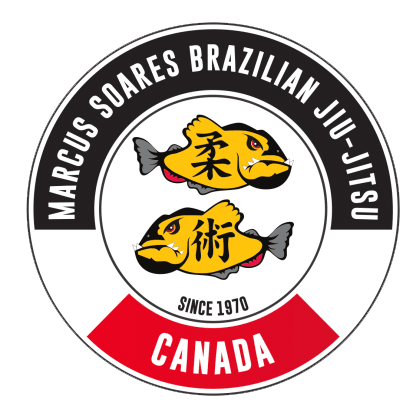Brazilian Jiu-Jitsu (BJJ) has long been recognized for its practical self-defense techniques and emphasis on strategy, control, and leverage over raw power. Outside of its traditional martial arts context, BJJ offers valuable applications for a variety of professionals, particularly those in law enforcement. For police officers, understanding and effectively utilizing BJJ techniques can mean the difference between life and death in high-risk and high-stress scenarios.
The rapidly evolving nature of law enforcement demands constant adaptation and improvement in techniques and tactics. Incorporating Brazilian Jiu-Jitsu into an officer’s skill set provides numerous practical benefits, including enhanced self-defense capabilities, safe and effective apprehension techniques, and the ability to maintain control without causing unnecessary harm. Additionally, the mental agility, calmness under pressure, and emotional resilience cultivated through BJJ training offer essential tools for officers navigating dangerous and unpredictable situations.
In this article, we will explore the advantages of BJJ training for law enforcement professionals, delving into the specific ways in which this martial art enhances officers’ performance and capabilities. We will discuss how BJJ equips law enforcement officers with the necessary tools to address threats, maintain control, and safely and effectively resolve confrontations. Join us as we examine the benefits of Brazilian Jiu-Jitsu training tailored specifically for law enforcement professionals at the Marcus Soares Brazilian Jiu-Jitsu.
Enhanced Self-Defense and Control Techniques for Officer Safety
Brazilian Jiu-Jitsu techniques focus on using leverage, balance, and body positioning to gain control over an opponent. This makes BJJ an excellent choice for law enforcement officers, who frequently need to protect themselves and maintain control during physical confrontations. Through consistent BJJ training, officers learn a wide range of self-defense and control techniques that prove invaluable in real-world situations.
By mastering BJJ principles and ground fighting techniques, officers become equipped to control and subdue suspects with minimal force, reducing the risk of injury to both themselves and the people they encounter. The ability to control suspects quickly and efficiently without resorting to excessive force is pivotal in promoting safety and minimizing liability during volatile situations.
De-escalation and Conflict Resolution Skills
In addition to providing practical self-defense techniques, Brazilian Jiu-Jitsu training also helps law enforcement officers develop valuable de-escalation and conflict resolution skills. BJJ emphasizes the importance of staying calm and composed in high pressure or life-threatening situations, enabling officers to think strategically, avoid panicking, and make rational decisions when it matters most.
BJJ’s focus on controlled, non-violent techniques serves as an effective tool for managing conflicts, allowing officers to employ appropriate force and avoid escalating dangerous situations. By learning how to effectively diffuse confrontations through grappling, officers can establish control and resolve potential issues before they spiral out of control.
Boosting Mental Resilience and Stress Management
Law enforcement is undoubtedly a demanding and high-stress profession, making mental resilience and stress management essential skills for success. Brazilian Jiu-Jitsu not only prepares officers physically for the challenges they face but also strengthens their mental fortitude and psychological well-being. BJJ training emphasizes the necessity of mental focus, strategic thinking, and patience, teaching officers to channel their emotions effectively.
Moreover, the intense nature of BJJ practice provides a physically and mentally demanding outlet that contributes to stress reduction. By engaging in regular BJJ training, officers can better manage their stress and maintain their mental well-being, ultimately improving overall job performance and emotional resilience.
Teamwork and Communication Development
The practice of Brazilian Jiu-Jitsu relies heavily on teamwork and effective communication, as students must work together to learn, grow, and develop their skills. The cooperative nature of BJJ training fosters a strong sense of camaraderie among practitioners, helping officers enhance their teamwork and communication abilities with colleagues.
As officers participate in BJJ training, they learn to trust, collaborate, and support one another, developing stronger bonds with their teammates. This enhanced ability to work together and communicate effectively is crucial in their line of work, as teamwork and coordination often prove critical in law enforcement scenarios.
Transforming Law Enforcement Performance with Brazilian Jiu-Jitsu
Brazilian Jiu-Jitsu offers an invaluable toolkit of skills and techniques for law enforcement officers, addressing the physical and mental demands of their profession. BJJ training provides officers with enhanced self-defense and control techniques, de-escalation and conflict resolution skills, improved mental resilience and stress management, and strengthened teamwork and communication. By incorporating BJJ into their training regimen, law enforcement professionals can transform their abilities, ensuring the safety and well-being of both themselves and the communities they serve.
At the Marcus Soares Brazilian Jiu-Jitsu, we offer tailored training programs specifically designed for law enforcement professionals, focusing on real-world applications of BJJ principles and techniques. With our expert instruction, officers can acquire valuable skills that prove essential on the job, fostering greater safety, effectiveness, and overall professionalism. Discover the immense benefits of Brazilian Jiu-Jitsu training for law enforcement with our session offerings. Join us today!

